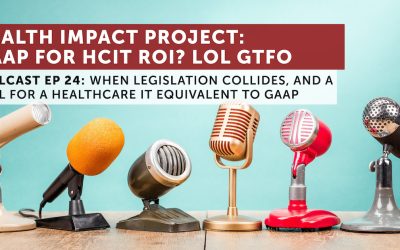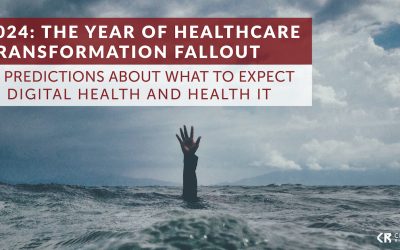Patient-centered activity monitoring in the self-management of chronic health conditions
Emil Chiauzzi, Carlos Rodarte and Pronabesh DasMahapatra in BMC Medicine
“An “above average” academic paper about personal patient data. This raises many questions and offers key insights for industry as to how to unlock the value of data, leverage it for behavior change, and embed the processes directly into existing systems and clinical care delivery workflow. Highly recommended read for those interested in patient and consumer engagement.” – Naveen
More competition is supposed to help consumers. That might not be true with health insurance.
Carolyn Johnson in The Washington Post
“Consolidation among health insurers will cause what to happen to premiums? This article suggests that fewer, larger payers have market power that they can wield against hospitals. This article is good but misses a major factor: the dominating influence of Medicare and Medicaid on prices. Informal wisdom among clinicians is that private payers lean on a Medicare + formula; actuarial divination is largely smoke.” – Brian M.
With Merging of Insurers, Questions for Patients About Costs and Innovation
Reed Abelson in The New York Times
“Much has been written about the quick consolidation trend in the health insurance industry. This piece delves into the many uncertainties that are being raised in the wake of the Aetna-Humana merger, as well as near-certain moves by Cigna, Anthem, and United Health Group. If this consolidation is driven in large part as a defensive reaction to provider consolidation (as a means of negotiating better rates), what will happen to prices? What will be the fate of mid-level, regional, and co-op plans in local markets? One question not well-addressed here is perhaps the most important – what will the impact be on the individual consumer?” – Naveen
‘A Terrible Way To End Someone’s Life’
Stephanie O’Neill in Kaiser Health News
“Given the choice, nearly 90 percent of doctors would forego CPR or other aggressive treatment if they faced a terminal illness. Yet most patients in the same position end up dying on life support. That’s why a growing number of doctors are trying to help their peers discuss end-of-life options with their patients – something the vast majority of doctors, trained to prolong life, have never felt comfortable doing.” – Brian E.
Medicare expected to pay for end-of-life talks
Joanne Kenen in Politico
“While it is likely to encounter some of the ‘death panel’ rhetoric it did in ’10, it appears that Medicare will soon begin to start paying doctors for the time they spend with patients for advanced care planning including end-of-life discussions. A small handful of state Medicaid programs already do so but this change would spur likely widespread adoption including among private payers by the end of the year. It is long overdue and something hopefully that becomes a staple of broader care coordination efforts by providers in the very near future.” – Matt
‘Navigators’ for cancer patients: A nice perk or something more?
Lenny Bernstein in The Washington Post
“More and more health systems have put in place patient navigator programs, especially for cancer patients, but the jury seems to be out on whether they are truly effective. The programs can come with short-term upticks in costs, but effective patient navigation can reduce hospitalizations and readmissions – and patients appreciate the help in booking appointments, getting bills paid or just figuring out what’s happening. The most telling line of the story, though, is the last one: “The fact that navigation exists is kind of an indictment of the cancer-care system,” suggesting that the whole system would benefit from an overhaul.” – Brian E.
Indiana’s Medicaid experiment offers a conservative take on health reform
Noam Levy in The Los Angeles Times
“The GOP is still struggling to come up with a viable alternative to ‘Obamacare’ but the Medicaid expansion in Indiana poses a possible model that might be adopted. The IN plan features very modest cost-sharing requirements in the form of health account along with emphasizing patients seeking preventative coverage annually or losing certain types of benefits coverage. It has enjoyed strong enrollment growth along with high utilization rates of preventative services but it is still too early to see what kind of quality effects it has on patients with chronic diseases and their service utilization patterns.” – Matt
Stephen Colbert Is Pretty Freaked Out About the NYSE Crash
Peter Kafka in Recode
“When the EHR goes down, clinicians reach for those trusty pre-printed forms, elective procedures get canceled, and productivity and throughput get rebalanced. If healthcare were like other markets, patients could take their business across the street to another provider — like what happens when the NYSE goes down. Securities trading is a competitive business and the idea of buyers having only one place to source the service would seem strange. We can only dream about a healthcare system that has this kind of competition.” – Brian M.
Why Is the Federal Government Afraid of Fat?
Dariush Mozaffarian and David S. Ludwig in The New York Times
“There is much more that impacts the health outcomes of Americans inside of our refrigerators than in the entire healthcare delivery and IT industries combined. We all know that lifestyle choices – nutrition and diet among the biggest ones – can make or break our long term health. This Op-Ed about outdated nutrition labels and the swirl of misinformation, political lobbying, and outdated approaches underscores the complicated nature of improving the health of a nation. The mock nutrition label is funny, too.” – Naveen




0 Comments